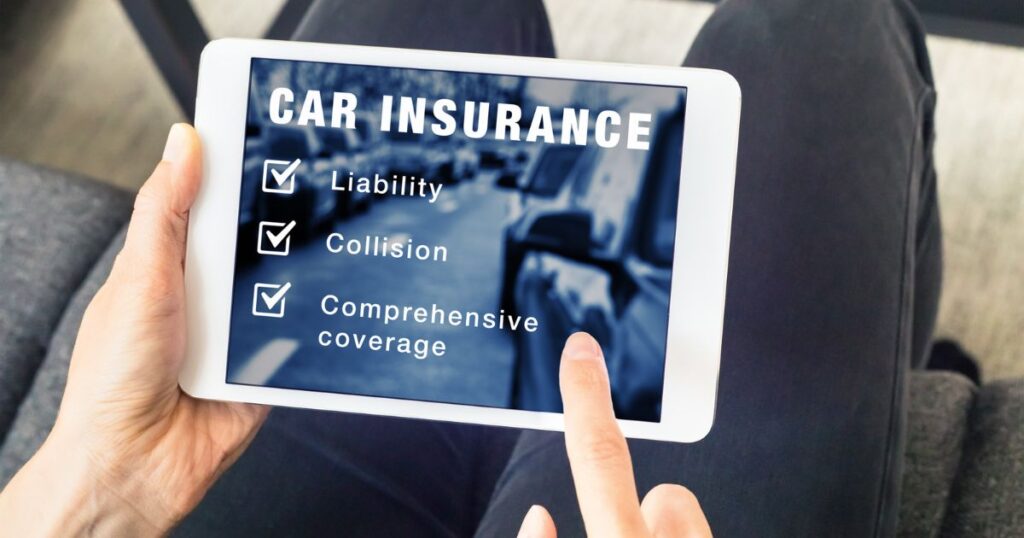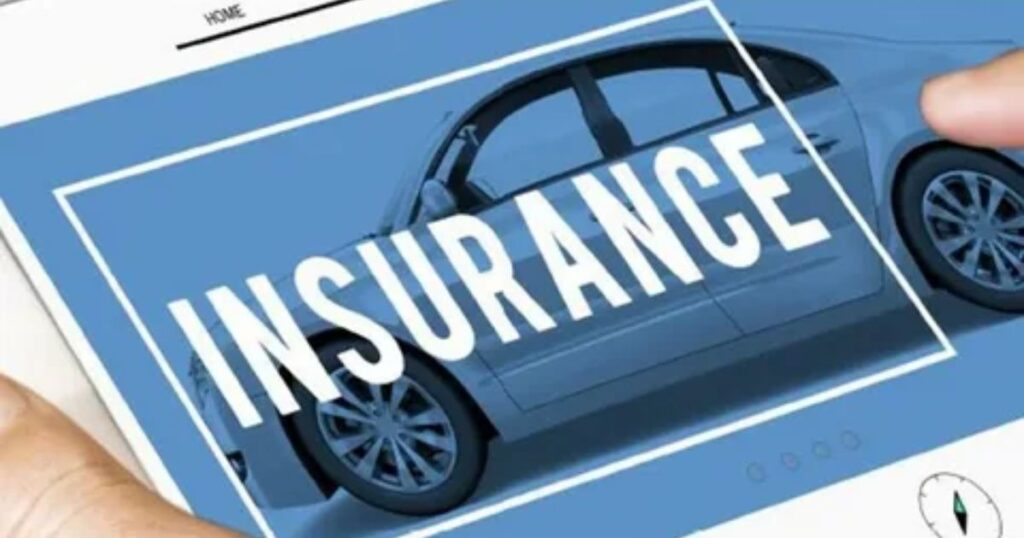Dealing with the aftermath of a car accident can be a daunting and overwhelming experience, especially when it comes to filing an insurance claim.
However, with the right knowledge and preparation, you can navigate the process smoothly and ensure that you receive the compensation you deserve.
In this comprehensive guide, we’ll dive deep into the intricacies of claiming auto insurance in Allentown for 2024, equipping you with the tools and strategies to tackle any challenges that may arise.
Understanding Auto Insurance in Allentown
Before we delve into the claims process, it’s essential to grasp the fundamentals of auto insurance in Allentown.
Having a solid understanding of the various coverage types and factors that influence your premiums will empower you to make informed decisions and ensure that you have adequate protection on the road.
Types of Coverage
Auto insurance in Allentown typically encompasses several types of coverage, each designed to safeguard you from different types of risks. Here’s a breakdown of the most common coverage options:
- Liability Coverage: This coverage protects you financially if you are found at fault in an accident and cause damage to someone else’s property or injure another person. It covers the costs associated with repairing or replacing the other party’s vehicle, as well as any medical expenses incurred by the injured party.
- Collision Coverage: If your vehicle is involved in a collision with another vehicle or object, collision coverage will help cover the cost of repairs or replacement for your car, regardless of who is at fault.
- Comprehensive Coverage: This type of coverage provides protection for your vehicle against non-collision events, such as theft, vandalism, natural disasters (e.g., hail, floods, or falling objects), and collisions with animals.
- Personal Injury Protection (PIP): PIP coverage is designed to cover medical expenses for you and your passengers in the event of an accident, regardless of who is at fault. This coverage can also help with lost wages and other expenses related to injuries sustained in the accident.
Factors That Affect Premiums
Your auto insurance premiums are influenced by several factors, and understanding these can help you make informed decisions about your coverage and potentially save money. Some of the key factors that insurance companies consider include:
- Driving Record: A history of accidents, traffic violations, or moving violations can significantly increase your premiums, as insurers view you as a higher risk.
- Type of Vehicle: The make, model, and year of your vehicle play a role in determining your premiums. High-performance or expensive vehicles generally carry higher premiums due to the increased risk of accidents and the potential for costly repairs or replacements.
- Age and Gender: Statistically, younger drivers and male drivers are considered higher-risk groups and, as a result, may face higher premiums.
- Location: Your geographic location can impact your premiums, as some areas have higher rates of accidents, theft, or other factors that increase the risk for insurance companies.
Read this Post: HALF OF A 1990S-2000S ROCK DUO WITH SIX GRAMMYS
Deductibles and Limits
When reviewing your auto insurance policy, it’s crucial to understand the concepts of deductibles and coverage limits. A deductible is the amount you must pay out-of-pocket before your insurance coverage kicks in to cover the remaining costs.
Generally, higher deductibles result in lower premiums, but you’ll need to weigh the potential savings against your ability to pay the deductible in the event of an accident.
Coverage limits, on the other hand, refer to the maximum amount your insurance company will pay for a specific type of claim.
For example, if your policy has a $25,000 limit for property damage liability and you cause $30,000 worth of damage, you would be responsible for paying the remaining $5,000 out-of-pocket.
Discounts
Many insurance companies offer various discounts to help policyholders save on their premiums. Here are some common discounts to inquire about:
- Multi-policy Discounts: If you have multiple insurance policies with the same company (e.g., auto and home insurance), you may be eligible for a discount.
- Good Driver Discounts: Maintaining a clean driving record without any accidents or violations can qualify you for a good driver discount.
- Safety Feature Discounts: Insurance companies may offer discounts if your vehicle is equipped with certain safety features, such as anti-lock brakes, airbags, or anti-theft devices.
Remember, it never hurts to ask your insurance agent about any potential discounts you may be eligible for, as they can add up to significant savings over time.
The Claims Process

Now that you have a solid understanding of auto insurance in Allentown, let’s dive into the claims process. Being prepared and following the proper steps can help ensure a smooth and efficient experience when filing a claim.
What to Do After an Accident: Step-by-Step Guide
In the immediate aftermath of an accident, it’s essential to remain calm and take the following steps:
- Check for Injuries: Your safety and the safety of others should be the top priority. If anyone is injured, call 911 immediately and administer first aid if possible.
- Move to a Safe Location: If the vehicles involved are obstructing traffic or creating a hazardous situation, move them to a safe location, such as the shoulder or a nearby parking lot.
- Exchange Information: Collect the name, contact information, insurance details, and license plate number of the other driver(s) involved in the accident.
- Document the Scene: Take photos or videos of the accident scene, including the positions of the vehicles, any visible damage, and any relevant road conditions or signage.
- Report the Accident: Notify your insurance company of the accident as soon as possible, even if you’re unsure of who was at fault. Provide them with the details of the incident and any documentation you’ve gathered.
- Seek Medical Attention: Even if you don’t feel injured immediately after the accident, it’s essential to seek medical attention as some injuries may not manifest symptoms right away.
Required Documents for Filing a Claim
To file an auto insurance claim in Allentown, you’ll need to have the following documents readily available:
- Insurance Policy Information: Have your policy number, coverage details, and your insurance company’s contact information on hand.
- Police Report: If the accident was reported to the police, obtain a copy of the official police report.
- Photos and Videos: Any visual documentation you gathered at the accident scene can help support your claim.
- Medical Records and Bills: If you or your passengers sustained injuries, keep track of all medical records, bills, and receipts related to the treatment.
- Proof of Ownership: You may need to provide proof of ownership for your vehicle, such as a registration card or title.
- Repair Estimates: If your vehicle requires repairs, obtain estimates from reputable auto repair shops to include with your claim.
Having these documents organized and readily available will help expedite the claims process and ensure that you have the necessary evidence to support your case.
Tips for Negotiating with Insurance Companies
While insurance companies are supposed to act in good faith, it’s essential to be prepared to negotiate if you believe the settlement offer is inadequate or if there are any disputes regarding liability or coverage. Here are some tips to help you navigate the negotiation process:
- Gather Documentation: Compile all relevant documentation, including the police report, medical records, repair estimates, and any other evidence that supports your claim.
- Understand Your Coverage: Thoroughly review your policy to ensure that you have a firm grasp of your coverage limits, deductibles, and any exclusions or limitations that may apply.
- Remain Calm and Composed: Negotiations can be stressful, but it’s important to stay level-headed and avoid confrontational or emotional behavior.
- Ask Questions: If you’re unsure about any aspect of the claims process or the insurance company’s offer, don’t hesitate to ask for clarification or additional information.
- Consider Professional Assistance: In some cases, it may be beneficial to seek the advice of an attorney or a public adjuster who can negotiate on your behalf and ensure that your rights are protected.
Remember, the goal of negotiating with insurance companies is to reach a fair and reasonable settlement that adequately covers the damages and expenses resulting from the accident.
Common Mistakes to Avoid
To ensure a smooth claims process and maximize your chances of receiving fair compensation, it’s important to avoid these common mistakes:
- Delaying the Claims Process: Promptly reporting the accident and filing a claim is crucial. Delays can lead to complications or even denial of your claim.
- Providing Incomplete or Inaccurate Information: Ensure that all details about the accident, including dates, times, locations, and descriptions, are accurately documented and reported to your insurance company.
- Underestimating Damages: Don’t underestimate the extent of the damages or injuries sustained in the accident. Seek professional assessments and obtain repair estimates to ensure that all costs are accounted for.
- Failing to Review Your Policy: Thoroughly reviewing your auto insurance policy before
Coverage Options in Allentown: Full vs. Limited Tort

When it comes to auto insurance in Allentown, one of the critical decisions you’ll need to make is choosing between full tort and limited tort coverage.
This decision can have a significant impact on your ability to seek compensation in the event of an accident, so it’s essential to understand the differences between these two options.
Full Tort Coverage
Full tort coverage, also known as unlimited tort, provides you with the unrestricted right to seek compensation for non-economic damages, such as pain and suffering, after an accident, regardless of the severity of your injuries.
With this coverage option, you maintain the legal right to pursue a lawsuit against the at-fault party for any injuries or damages sustained.
Advantages of Full Tort Coverage:
- Allows you to seek compensation for pain and suffering, emotional distress, and other non-economic damages.
- Provides more flexibility and options in the event of a serious accident or injury.
- May result in higher settlement amounts or court awards.
Disadvantages of Full Tort Coverage:
- Generally more expensive than limited tort coverage due to the increased risk for insurance companies.
- The claims process may be more complicated and time-consuming.
Limited Tort Coverage
Limited tort coverage, also known as “no-fault” or “verbal threshold,” typically offers lower premiums compared to full tort coverage.
However, it also limits your ability to seek non-economic damages, such as pain and suffering, unless your injuries meet certain criteria or “verbal thresholds.”
Advantages of Limited Tort Coverage:
- Lower insurance premiums compared to full tort coverage.
- Simplified claims process for minor accidents or injuries.
Disadvantages of Limited Tort Coverage:
- Restricts your ability to seek compensation for non-economic damages unless your injuries meet specific criteria (e.g., permanent disfigurement, loss of a bodily function, or significant medical expenses).
- May result in lower settlement amounts or compensation for serious accidents or injuries.
When deciding between full tort and limited tort coverage, it’s essential to consider your individual circumstances, risk tolerance, and the potential impact of an accident on your finances and well-being. Some factors to consider include:
- Your driving habits and the likelihood of being involved in an accident.
- Your ability to afford higher insurance premiums for full tort coverage.
- The value you place on having the option to seek compensation for non-economic damages, such as pain and suffering.
It’s always a good idea to consult with an insurance professional or legal expert to help you weigh the pros and cons of each option and make an informed decision based on your specific needs and goals.
Conclusion
In conclusion, successfully navigating the auto insurance claims process in Allentown requires being well-informed, proactive, and organized. By understanding your coverage options, documenting everything meticulously, and being prepared to negotiate, you can handle the claims process with confidence.
Remember to consider your individual needs and risk tolerance when selecting coverage, and don’t hesitate to seek professional assistance if needed. With the right preparation and persistence, you can ensure a smooth and fair outcome, securing the compensation you deserve.
By following these guidelines and utilizing available resources, you will be better equipped to manage the complexities of auto insurance claims and protect your rights throughout the process.

Dennis, a seasoned tech professional with 5 years of expertise in the field. With a passion for innovation, he’s dedicated to delivering cutting-edge solutions through our website.







